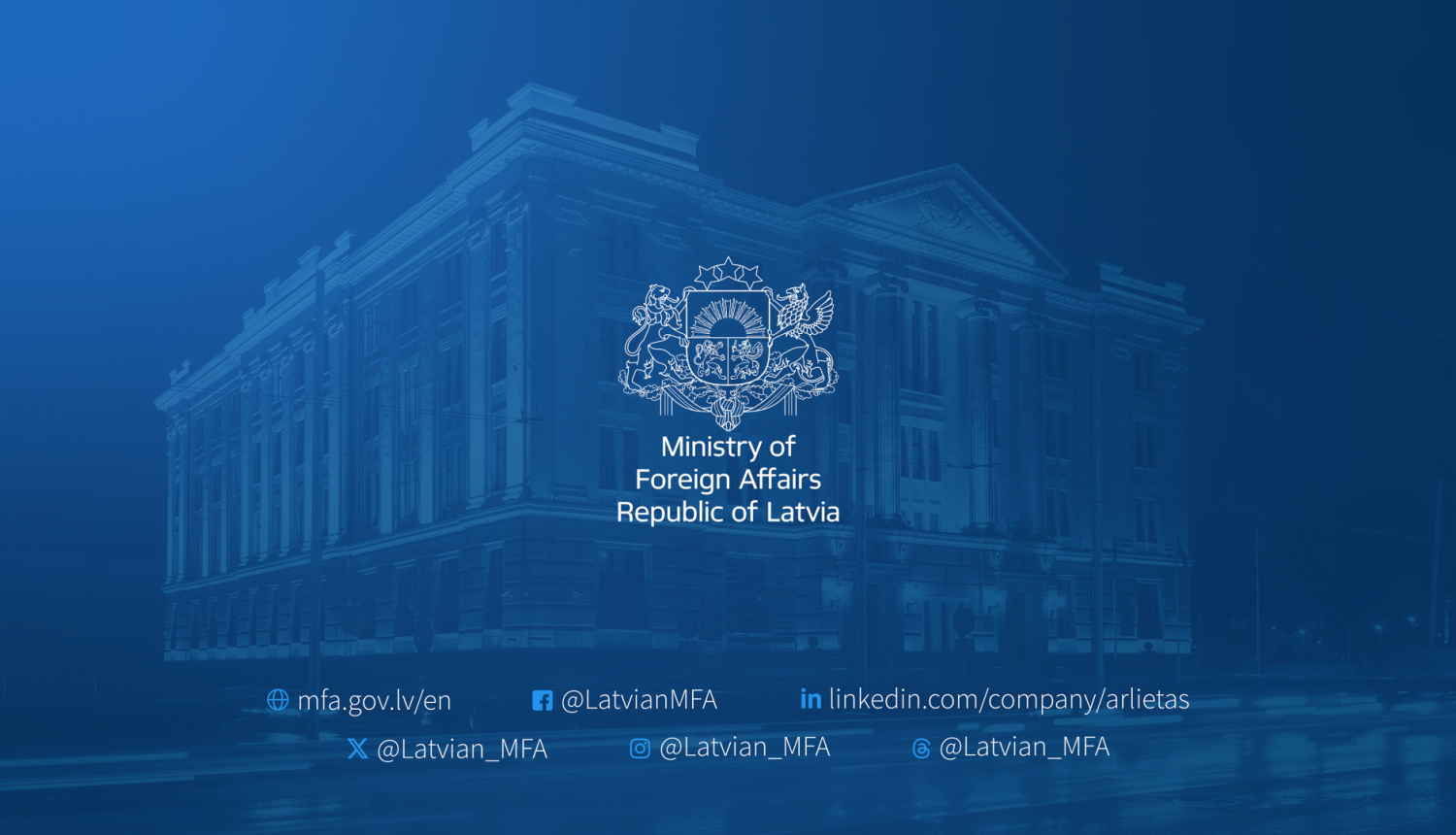On 26 June 2025, the UN Special Rapporteur on the situation of human rights in Belarus, Nils Muižnieks, will present his first report to the UN Human Rights Council in Geneva. In the discussion following the presentation of the report, Latvian Foreign Minister Baiba Braže will address the UN Human Rights Council by video on behalf of the Baltic and Nordic countries (NB8).
In his report, Nils Muižnieks exposes the cruel repression of freedom of expression and assembly and the brutal repression of political prisoners who are tortured, humiliated, engaged in forced labour, and denied medical care. The Belarusian authorities also engage in cross-border repression, targeting the opposition and Belarusian civil society in exile with sentences in absentia. The cases of court-ordered forced psychiatric treatment as a politically motivated form of punishment are shocking.
The UN Special Rapporteur’s presentation and discussion can be viewed live on the UN TV website. The discussion is expected to start on 26 June at 16.00, Latvia time.
Key findings of the UN Special Rapporteur
- Arbitrary detention cases continue to increase, and minors are being detained on politically motivated charges. Detainees are denied access to a fair trial and a lawyer, and excessively harsh sentences are often imposed because law enforcement authorities are not properly supervised. At least 33 persons have been ordered to undergo compulsory psychiatric treatment for their participation in protests.
- Prison conditions in Belarus are inhumane, and physical and emotional abuse is practised. Detainees are placed in solitary confinement for long periods of time, have no access to proper medical care, food and clothing, and are subjected to forced labour. Women and girls are subjected to gender-based violence. Detainees are denied communication with their relatives.
- The so-called ‘elections’ of 26 January 2025 could not be recognised as genuine periodic elections because they did not comply with international standards. The Belarusian authorities abused the legislative and judicial system by preventing opposition candidates from participating in the elections and denying participation to Belarusian citizens living in exile.
- The Belarusian authorities use the counter terrorism and extremism framework for political repression against the opposition, human rights defenders, journalists, and civil society. The Belarusian authorities have recorded more than 22 000 cases of alleged extremism in the last five years.
The Special Rapporteur concludes his report with 19 recommendations to the Belarusian government, including an immediate end to the repression of Belarusian civil society for exercising their civil and political rights, the release and full rehabilitation of all political prisoners, the abolition of the discriminatory legal framework, the establishment of an independent prison supervisory authority, cooperation with UN human rights mechanisms, and the lifting of all restrictions on freedom of expression and assembly.
The Special Rapporteur also urges the international community and institutions to support the UN human rights mechanisms, to continue to support Belarusian human rights organisations in exile and to promote human rights-based solutions to the pressing challenges identified in the report.




